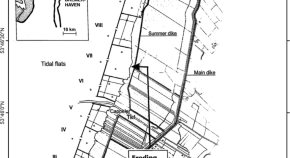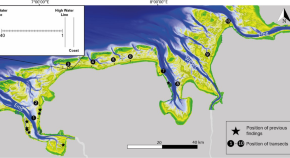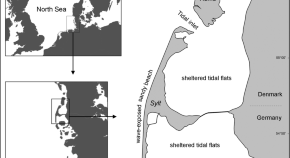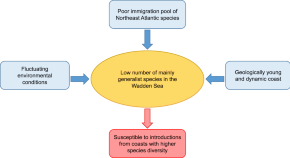Harbour porpoise (Phocoena phocoena) in the Wadden Sea World Heritage Site and requirements for trilateral monitoring
Authors (first, second and last of 16)

Collection
Christian Buschbaum is a marine ecologist with a focus on sedimentary shores. His main research interests are species interactions in biotic structures such as kelp forests and bivalve beds. Currently, he mainly works on the effects of introduced organisms on native communities and he conducts large-scale ecological comparisons from temperate to Arctic regions.
Helmut Hillebrand is generally very interested in the mechanisms that constrain and alter biodiversity in a variety of ecosystems. He likes to think about the complex nature of biodiversity change and ecological stability. Trained as an experimental ecologist, he has focused more on research syntheses and data analyses in recent years.
Stefan Garthe is a biologist and professor at Kiel University, Germany. He has published more than 270 papers in international and national journals. His research focuses on marine ecological topics with main emphasis on seabirds in the North Atlantic region as well as on marine conservation. He was president of the German Ornithologists' Society from 2013-2018.
Ulrike Schückel is a marine biologist working at the National Park Authority of the Schleswig-Holstein Agency for Coastal Defence, National Park and Marine Conservation in Tönning, Germany. She received her PhD degree from the University of Oldenburg in 2013.She has published several papers in prestigious international journals. Her research areas include benthic ecology, biodiversity, invasive species, trophic interactions, food web modelling, and marine conservation and assessment issues.
Ursula Siebert is a trained veterinarian who did the PhD in ecotoxicology and the habilitation in zoology. She was trained in veterinary pathology and wildlife biology and health. Ursula is Board certified by the European College of Zoological Medicine for Wildlife Population Health (ECZM-WPH) and European College of Aquatic Animal Health (ECAAH). She is currently Professor at the University of Veterinary Medicine of Hannover and Honory Professor of the Aarhus University in Denmark.








